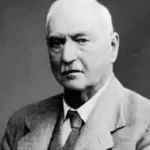 | |
A Case of Premeditation | |
| Author | R. Austin Freeman |
|---|---|
| Published |
1910
|
| Language | English |
| Nationality | British |
| Genre | Humor, Poetry |
1910 Short Story
A Case of Premeditation
A Case of Premeditation is an English Humor, Poetry short story by British writer R. Austin Freeman. It was first published in 1910. A Case of Premeditation is one of Freeman's inverted detective stories, also referred to as a "locked room mystery" featuring his favorite medical-forensic investigator, Dr. Thorndyke. It was first published in McClure's Magazine, August, 1910.
A Case of Premeditation
by R. Austin Freeman
MR. RUFUS PEMBURY was not pleased when, as the train was about to move out of Maidstone (East) Station, a coarse and burly man (clearly a denizen of the third class) was ushered into his compartment by the guard. His resentment deepened as the stranger sat down and fixed upon Mr. Pembury a gaze of impertinent intensity.
Mr. Pembury fidgeted in his seat, looked into his pocket-book, and even thought of opening his umbrella. Finally he turned to the stranger with frosty remonstrance:
“I imagine, sir, that you will have no difficulty in recognizing me, should we ever meet againwhich God forbid.”
“I should reckernize you among ten thousand,” was the reply, so unexpected as to leave Mr. Pembury speechless.
“You see,” the stranger continued impressively, “I’ve got the gift of faces. I never forget.”
“That must be a great consolation,” said Pembury.
“It’s very useful to me,” said the stranger; “at least, it used to be, when I was a warder at Portland. You remember me, I dare say. My name is Pratt. I was assistant warder in your time. God-forsaken hole, Portland!”
Pembury pulled himself together.
“I think,” said he, “you must be mistaking me for some one else.”
“I don’t,” replied Pratt. “You’re Francis Dobbs. Slipped away from Portland one evening about twelve years ago. Clothes washed up on the Bill next day. As neat a mizzle as ever I heard of. But there are a couple of photographs and a set of finger-prints at the Habitual Criminals Register. P’raps you’d like to come and see ’em?”
“Why should I go to the Habitual Criminals Register?” Pembury, demanded faintly.
“Ah! Exactly. Why should you?when you are a man of means and a little judiciously invested capital would render it unnecessary.”
Pembury looked out of the window, and for a minute or more preserved a stony silence. At length he turned to Pratt. “How much?”
“I shouldn’t think a couple of hundred a year would hurt you,” was the calm reply.
Pembury reflected. “What makes you think I am a man of means?” he asked presently.
Pratt smiled grimly. “Bless you, Mr. Pembury,” said he, “I know all about you. Why, for the last six months I have been living within half a mile of your house.”
“The devil you have!”
“Yes. When I retired from the service, General O’Gorman engaged me as care-taker of his place at Baysford, and the very day after I came down I met you, but, naturally, I kept out of sight. Thought I’d find out whether you were good for anything before I spoke, so I’ve been keeping my ears open, and I find you are good for a couple of hundred.”
There was an interval of silence, and then the ex-warder resumed:
“That’s what comes of having a memory for faces. Now, there’s Jack Ellis, on the other hand. He must have had you under his nose for a couple of years, and yet he’s never twiggedhe never will, either,” added Pratt, already regretting the confidence into which his vanity had led him.
“Who is Jack Ellis?” Pembury demanded.
“Why, he’s a sort of supernum’ary at the Baysford police station. He was in the Civil Guard at Portland in your time, but he got his left forefinger chopped off, so they pensioned him, and he got this billet. But he’ll never reckernize you.”
“Who is this General O’Gorman? I seem to know the name.”
“I expect you do,” said Pratt. “He was governor of Dartmoor when I was there, and, let me tell you, if he’d been at Portland in your time, you’d never have got away. The General is a great man on bloodhounds. He kept a pack at Dartmoor, and there were no attempted escapes in those days.”
“Has he the pack still?” asked Pembury.
“Rather. He’s always hoping there’ll be a burglary or a murder in the neighborhood, so as he can try ’em. But, to come back to our little arrangement, what do you say to a couple of hundred, paid quarterly, if you like?”
“I can’t settle the matter offhand,” said Pembury. “You must give me time to think it over.”
“Very well,” said Pratt. “I shall be back at Baysford to-morrow. Shall I look in at your place to-morrow night?”
“No,” replied Pembury; “you’d better not be seen at my house, nor I at yours. If I meet you at some quiet spot, we can settle our business without any one knowing that we have met. It won’t take long, and we can’t be too careful.”
“That’s true,” agreed Pratt. “Well, I’ll tell you what. There’s an avenue leading up to our houseyou know it, I expect. The gates are always ajar, excepting at night. Now, I’ll be down by the six thirty at Baysford. Our place is a quarter of an hour from the station. Say you meet me in the avenue at a quarter to seven. How will that do?”
“That will suit me,” answered Pembury.
“Hallo!” said Pratt, suddenly. “This’ll be Swanley, I expect. So long. To-morrow evening, in the avenue, at a quarter to seven.”
“Very well,” said Mr. Pembury. He spoke coldly enough, but there was a flush on his cheeks and an angry light in his eyes, which, perhaps, the ex-warder noticed; for, when he had stepped out and shut the door, he thrust his head in at the window and said threateningly:
“One more word, Mr. Pembury-Dobbs. No hanky-panky, you know. I’m an old hand, and pretty fly, I am. So don’t you try any chickery-pokery on me. That’s all!”
He withdrew his head and disappeared, leaving Pembury to his reflections.
Rufus Pembury, to give him his real name, was a man of strong character and intelligence. So much so that, having tried the criminal career and found it not worth pursuing, he had definitely abandoned it. When the cattle-boat that had picked him up off Portland Bill landed him at an American port, he brought all his ability and energy to bear on legitimate commercial pursuits, with such success that at the end of ten years he was able to return to England with a moderate competence. Then he had taken a modest house near the little town of Baysford, and here he might have lived out the rest of his life in peace but for the unlucky chance that brought Pratt into the neighborhood.
There is something eminently unsatisfactory about a blackmailer. No arrangement with him has any permanent validity. The thing that he has sold remains in his possession to sell over again. He pockets the price of emancipation. but retains the key of the fetters. In short, the blackmailer is a totally impossible person.
Such were Rufus Pembury’s reflections, even while Pratt was making his proposals, which he had never for an instant entertained. Pratt must be eliminated: it was a logical consequence. The profound meditations, therefore, in which Pembury remained immersed for the remainder of the journey had nothing whatever to do with the quarterly allowance; they were concerned exclusively with the elimination of ex-warder Pratt.
When Pembury alighted at Charing Cross, he directed his steps toward a quiet private hotel. The woman manager greeted him by his name as she handed him his key. “Are you staying in town, Mr. Pembury?” she asked.
“No,” was the reply; “I go back to-morrow morning. But I may be coming up again shortly. By the way, you used to have an Encyclopædia. Could I see it for a moment?”
That a gentleman from the country should desire to look up the subject of hounds would not, to a casual observer, have seemed unnatural. But when from hounds he proceeded to the article on blood, and thence to one devoted to perfumes, the observer might reasonably have felt some surprise; and this surprise might have been augmented if he had followed Mr. Pembury’s subsequent proceedings, and especially if he had considered them as the actions of a man whose immediate aim was the removal of a superfluous unit of the population.
Having deposited his bag and umbrella in his room, Pembury set forth from the hotel as one with a definite purpose; and his footsteps led, in the first place, to an umbrella shop in the Strand, where he selected a thick rattan cane. There was nothing remarkable in this, perhaps; but the cane was of an uncomely thickness, and the salesman protested.
“I like a thick cane,” said Pembury.
“Yes, sir; but for a gentleman of your height” (Pembury was a small, slightly built man), “I would venture to suggest”
“I like a thick cane,” repeated Pembury. “Cut it down to the proper length, and don’t rivet the ferrule on.”
His next investment would have seemed more to the purpose, though suggestive of unexpected crudity of method. It was a large Norwegian knife. Not content with this, he went on to a second cutler’s, and purchased another knife, the exact duplicate of the first.
Shopping appeared to be a positive mania with Rufus Pembury. In the course of the next half hour he acquired a cheap hand-bag, an artist’s japanned brush-case, a three-cornered file, a stick of elastic glue, and a pair of iron crucible-tongs. Still insatiable, he repaired to a chemist’s shop, where he further enriched himself with a packet of absorbent cotton-wool and an ounce of permanganate of potash; and, as the chemist wrapped up these articles, Pembury watched him impassively.
“I suppose you don’t keep musk?” he asked.
The chemist paused in the act of heating a stick of sealing-wax. “No, sir, not the solid musk; it’s so very costly. But I have the essence.”
“That isn’t as strong as the pure stuff, I suppose?”
“No,” replied the chemist, with a smile, “not so strong, but strong enough. These animal perfumes are so very penetrating, you know, and so lasting. Why, I venture to say that if you were to sprinkle a table-spoonful of the essence in the middle of St. Paul’s, the place would smell of it six months hence.”
“You don’t say so!” said Pembury. “Well, that ought to be enough for anybody. I’ll take a small quantity, please, and, for goodness’ sake, see that there isn’t any on the outside of the bottle. The stuff isn’t for myself, and I don’t want to go about smelling like a civet-cat.”
“Naturally you don’t,” agreed the chemist. “There, sir,” said he, when the musk was ready, “there is not a drop on the outside of the bottle, and, if I fit it with a rubber cork, you will be quite secure.”
Pembury’s dislike of musk appeared to be excessive, for, when the chemist had retired to change half a crown, he took the brush-case from the hand-bag, pulled off its lid, and then, with the crucible-tongs, daintily lifted the bottle off the counter, slid it softly into the brush-case, and, replacing the lid, returned the case and tongs to the bag. The other two packets he took from the counter and dropped into his pocket; and, having received his change, left the shop and walked thoughtfully back toward the Strand. Suddenly a new idea seemed to strike him. He halted, and then strode away northward to make the oddest of all his purchases.
The transaction took place in a shop in the Seven Dials whose strange stock in trade ranged from water-snails to Angora cats. Pembury looked at a cage of guinea-pigs in the window, and entered the shop.
“Do you happen to have a dead guinea-pig?” he asked.
“No; mine are all alive,” replied the man, adding, with a sinister grin: “but they’re not immortal, you know.”
Pembury looked at the man distastefully. There is an appreciable difference between a guinea-pig and a blackmailer. “Any small mammal would do,” he said.
“There’s a dead rat in that cage, if he’s any good,” said the man. “Died this morning.”
“I’ll take the rat,” said Pembury; “he’ll do quite well.”
Accordingly the little corpse was wrapped up in a parcel and deposited in the bag, and Pembury made his way back to the hotel. After a modest lunch he spent the remainder of the day transacting the business that had originally brought him to town. He did not return to his hotel until ten o’clock, when he went immediately to his room. But before undressing (and after locking his door) he did a very strange and unaccountable thing. Having pulled off the loose ferrule from his newly purchased cane, he bored a hole in the bottom of it with the spike end of the file. Then, with the file, he enlarged the hole until only a narrow rim of the bottom was left. He next rolled up a small ball of cotton-wool and pushed it into the ferrule: and, having smeared the end of the cane with elastic glue, he replaced the ferrule, warming it over the gas to make the glue stick.
When he had finished with the cane, he turned his attention to one of the Norwegian knives. First, with the file, he carefully removed most of the bright yellow varnish from the wooden handle, and laid the knife down, open. Then he unwrapped the dead rat which he had bought at the zoologist’s. Laying the animal on a sheet of paper, he cut off its head, and, holding it up by the tail, allowed the blood to drop on the knife, spreading it over both sides of the blade and handle.
Then he laid the knife on the paper, and softly opened the window. From the darkness below came the voice of a cat, and in its direction Pembury flung the body and head of the rat, and closed the window. Finally, having washed his hands and stuffed the paper from the parcel into the fireplace, he went to bed.
” ‘I SHOULD RECKERNIZE YOU AMONG TEN THOUSAND’ “
His proceedings in the morning were equally mysterious. Having breakfasted betimes, he returned to his bedroom and locked himself in. Then he tied his new cane, handle downward, to the leg of the dressing-table. Next, with the crucible-tongs, he drew the little bottle of musk from the brush-case, and, having assured himself, by sniffing at it, that the exterior was really free from odor, he withdrew the rubber cork. Then, slowly and with infinite care, he poured perhaps half a teaspoonful of the essence on the cotton-wool that bulged from the hole in the ferrule. When it was saturated, he proceeded to treat the knife in the same fashion, letting a little of the essence fall on the wooden handle, which soaked it up readily. This done, he opened the window and looked out. The body of the rat had disappeared. Holding out the musk-bottle, he dropped it into some laurel bushes that grew in the yard below, flinging the rubber cork after it.
His next proceeding was to squeeze a small quantity of vaseline on his fingers, and thoroughly to smear the shoulder of the brush-case and the inside of the lid, so as to insure an air-tight joint. Having wiped his fingers, he picked up the knife with the crucible-tongs, and, dropping it into the brush-case, immediately pushed on the lid. Then he heated the tips of the tongs in the gas flame, to destroy the scent, packed the tongs and brush-case in his bag, untied the cane,carefully avoiding contact with the ferrule,and, taking up the two bags, went out, holding the cane by its middle.
There was no difficulty in finding an empty compartment, for first-class passengers were few at that time in the morning. Pembury waited on the platform until the guard’s whistle sounded; then he stepped into the compartment, shut the door, and laid the cane on the seat, with its ferrule projecting out of the off-side window; in which position it remained until the train drew into Baysford Station.
Pembury left his dressing-bag in the cloak-room, and, again grasping the cane by its middle, and carrying the smaller hand-bag, he sallied forth. The town of Baysford lay about half a mile to the east of the station; his own house was a mile along the road to the west; and half way between his house and the station was the residence of General O’Gorman. Pembury knew the place well. It stood on the edge of a great expanse of flat meadows, and communicated with the road by an avenue, nearly three hundred yards long, of ancient trees. The avenue was shut off from the road by a pair of iron gates; but these were merely ornamental, for the place was accessible from the surrounding meadowsindeed, an indistinct foot-path crossed the meadows and intersected the avenue about half way up.
Pembury approached the avenue by the footpath, and, as he entered it, examined the adjacent trees with more than a casual interest. The two between which he had entered were an elm and a great pollard oak, the latter being an immense tree whose huge, warty bole divided, about seven feet from the ground, into three limbs, each as large as a fair-sized tree, of which the largest swept outward in a great curve half way across the avenue. On this patriarch Pembury bestowed special attention, walking completely around it, and finally laying down his bag and cane (the latter resting on the bag, with the ferrule off the ground), that he might climb up, by the aid of the warty outgrowths, to examine the crown.
Apparently the oak did not meet his requirements, for he climbed down again. Then, beyond the elm, he caught sight of an ancient pollard hornbeama strange, fantastic tree whose trunk widened out trumpetlike, above, into a broad crown, from the edge of which multitudinous branches uprose like the limbs of some weird hamadryad.
The crown of the trunk was barely six feet from the ground, and he found that he could reach it easily. Standing the cane against the tree,ferrule down this time,he took the brush-case from his bag, pulled off the lid, and, with the crucible-tongs, lifted out the knife and laid it on the crown of the tree, just out of sight, leaving the tongs, also invisible, still grasping the knife. He was about to replace the brush-case in the bag, when he appeared to alter his mind. Sniffing at it, and finding it reeking with the sickly perfume, he pushed the lid on again, and threw the case up into the tree, where he heard it roll down into the central hollow of the crown. Then he closed the bag, and, taking the cane by its handle, moved slowly away in the direction whence he had come, passing out of the avenue between the elm and the oak.
His mode of progress was certainly peculiar. He walked very slowly, trailing the cane along the ground, and every few paces he stopped and pressed the ferrule firmly against the earth. To any one observing him, he would have appeared wrapped in an absorbing reverie. In this manner he moved across the fields, not returning to the highroad until he came to a narrow lane that led out into High Street. Immediately opposite the lane was the police station, distinguished from the adjacent cottages only by its lamp, its open door, and the notices posted up outside. Straight across the road Pembury walked, still trailing the cane, and halted at the station door to read the notices, resting his cane on the door-step as he did so. Through the open doorway he could see a man writing at a desk. The man’s back was toward him, but presently a movement brought his left hand into view, and Pembury noted that the forefinger was missing. This, then, was Jack Ellis, late of the Civil Guard at Portland.
Even while he was looking, the man turned his head, and Pembury recognized him at once. He had frequently met him on the road between Baysford and the adjoining village of Thorpe, and always at the same time. Apparently Ellis paid a daily visit to Thorpe,perhaps to receive a report from the rural constable,starting between three and four and returning at seven or a quarter past.
Page 407 – A Case Of Premeditation.png ” ‘DO YOU HAPPEN TO HAVE A DEAD GUINEA-PIG?’ HE ASKED”
Pembury looked at his watch. It was fifteen minutes after three. He moved away thoughtfully (holding his cane by the middle now), and began to walk slowly in the direction of Thorpe. For a while he was deeply meditative and his face wore a puzzled frown. Then it suddenly cleared, and he strode forward at a brisker pace. Presently he passed through a gap in the hedge, and, walking in a field parallel with the road, took out his pursea small pigskin pouch.
Having frugally emptied it of its contents, excepting a few shillings, he thrust the ferrule, of his cane into the small compartment ordinarily reserved for gold or notes. And thus he continued to walk on slowly, carrying the cane by the middle, with the purse jammed on, the end.
At length he reached a sharp double curve in the road, whence he could see back for a considerable distance, and here, opposite a small opening, he sat down to wait. The hedge would screen him effectually from the gaze of passersby without interfering with his view.
A quarter of an hour passed. He began to be uneasy. Had he been mistaken? Were Ellis’ visits only occasional instead of daily, as he had thought? That would be tiresome, though not actually disastrous. But at this point in his reflections a figure came into view, advancing along the road with a steady swing. He recognized the figure as Ellis. But there was another person advancing from the opposite direction, apparently a laborer, Pembury prepared to shift his ground, but another glance showed him that the laborer would pass first. He waited. The laborer came on, and at length passed the opening. After the laborer had gone on, Ellis disappeared for a moment in a bend of the road. Instantly Pembury passed his cane through the opening in the hedge, shook off the purse, and pushed it into the middle of the footway. Then he crept forward behind the hedge toward the approaching officer, and again sat down to wait. On came the steady tramp of the unsuspecting Ellis, and, as the sound passed, Pembury drew aside an obstructing branch and peered out at the retreating figure. Would Ellis see the purse? It was not a conspicuous object.
The footsteps stopped abruptly. Looking out, Pembury saw the police official stoop, pick up the purse, examine its contents, and finally stow it in his trousers pocket. Pembury heaved a sigh of relief, and, as the figure passed out of sight round a curve in the road, he rose, stretched himself, and strode briskly away.
A group of ricks suggested a fresh idea. Walking to the farther side of one of the ricks, and thrusting his cane deeply into it, he pushed it home with a piece of stick until the handle was lost in the straw. The hand-bag was now all that was left. He opened it and smelled of its interior, but, though he could detect no odor, he resolved to be rid of it.
As he emerged from the gap, a wagon jogged slowly by. Stepping into the road, Pembury quickly overtook the wagon, and, having glanced around, laid the bag lightly on the tail-board. Then he set off for the station to get his dressing-bag.
On arriving home, he went straight up to his bedroom, and, ringing for the housekeeper, ordered a substantial meal. Then he took off his clothes, and deposited them, even to the shirt, socks, and necktie, in a trunk in which his summer clothing was stored, with a plentiful sprinkling of naphthol to preserve it from moths. Taking the packet of permanganate of potash from his dressing-bag, he passed into the adjoining bath-room, and, tipping the crystals into the bath, turned on the water. Soon the bath was filled with a pink solution of the salt, and into this Pembury plunged, immersing his entire body and thoroughly soaking his hair. Then he emptied the bath, rinsed himself in clear water, and dressed in fresh clothing. Finally he ate a hearty meal, and then lay down to rest until it should be time to start for the rendezvous.
Half past six found him lurking in the shadow by the station approach, within sight of the solitary lamp. He heard the train come in, saw the stream of passengers emerge, and noted one figure detach itself from the throng and turn into the Thorpe road. It was Pratt, as the lamplight showed himPratt striding forward to the meeting-place with an air of jaunty satisfaction and an uncommonly creaky pair of boots.
Pembury followed him at a distance, until he was well past the stile at the entrance to the foot-path. Evidently he was going on to the gates. Then Pembury vaulted over the stile and strode swiftly across the dark meadows.
When he plunged into the deep gloom of the avenue, his first act was to grope his way to the hornbeam, and slip his hand up to the crown to satisfy himself that the tongs were as he had left them. Reassured by the touch of his fingers on the iron loops, he turned and walked slowly down the avenue. The duplicate knife, ready opened, was in his left inside breast pocket, and he fingered its handle as he walked.
Presently the iron gate squeaked mournfully, and then the rhythmical creak of a pair of boots coming up the avenue was audible. Pembury walked forward slowly until a darker smear emerged from the surrounding gloom, when he called out:
“Is that you, Pratt?”
“That’s me,” was the cheerful response, and, as he drew nearer, the ex-warder asked:
“Have you brought the rhino, old man?”
The insolent familiarity of the man’s tone strengthened Pembury’s nerve and hardened his heart. “Of course,” he replied; “but we must have a definite understanding, you know.”
“Look here,” said Pratt. “I’ve got no time for jaw. The General will be here presently; he’s riding over from Bingfield with a friend. You hand over the dibbs, and we’ll talk some other time.”
“That is all very well,” said Pembury, “but you must understand” He paused abruptly, and stood still. They were now close to the hornbeam, and, as he stood, he stared up into the dark mass of foliage.
“What’s the matter?” demanded Pratt. “What are you staring at?”
He, too, had halted, and now stood gazing intently into the darkness.
Then, in an instant, Pembury whipped out the knife, and drove it, with all his strength, into the broad back of the ex-warder, below the left shoulder-blade.
With a hideous yell, Pratt turned and grappled with his assailant. A powerful man, and a competent wrestler, he was far more than a match for Pembury unarmed, and in a moment he had him by the throat. But Pembury clung to him tightly, and, as they trampled to and fro, round and round, he stabbed again and again, with the viciousness of a scorpion, while Pratt’s cries grew gurgling and husky. Then they fell heavily to the ground, Pembury underneath. Pratt relaxed his hold, and in a moment grew limp and inert. Pembury pushed him off and rose, breathing heavily.
But he wasted no time. There had been more noise than he had bargained for. Quickly stepping to the hornbeam, he reached up for the tongs. His fingers slid into the looped handles of the tongs that grasped the knife, and he lifted it out from its hiding-place and deposited it on the ground a few feet from the body. Then he went back to the tree and carefully pushed the tongs over into the hollow of the crown.
At this moment a woman’s voice sounded shrilly from the top of the avenue.
“Is that you, Mr. Pratt?” it called.
Pembury started, and then stepped back quickly, on tiptoe, to the body. For there was the duplicate knife. He must take that away at all costs.
The corpse was lying on its back. The knife was underneath it, driven into the very haft. Pembury had to use both hands to lift the body, and even then he had some difficulty in disengaging the weapon. And, meanwhile, the voice, repeating its question, came nearer.
At last he succeeded in drawing out the knife, and thrust it into his breast pocket. The corpse fell back, and he stood up, gasping.
“Mr. Pratt! Are you there?”
The nearness of the voice startled Pembury, and, turning sharply, he saw a light twinkling between the trees. And then the gates creaked loudly, and he heard the crunch of a horse’s hoofs on the gravel.
He stood for an instant, bewildered, utterly taken by surprise. He had not reckoned on a horse. His intended flight across the meadows toward Thorpe was now impossible. If he were overtaken he would be lost; for he knew there was blood on his clothes and hands, to say nothing of the knife in his pocket.
But his confusion lasted only for an instant. He remembered the oak tree, and ran to it. Touching it as little as possible with his bloody hands, he climbed quickly up into the crown. The great horizontal limb was nearly three feet in diameter, and, as he lay out on it, gathering his coat closely about him, he was quite invisible from below.
He had hardly settled himself when the light that he had seen came into full view, revealing a woman advancing with a stable lantern in her hand. And, almost at the same moment, a streak of brighter light burst from the opposite direction. The horseman was accompanied by a man on a bicycle.
The two men came on apace, and the horseman, sighting the woman, called out: “Anything the matter, Mrs. Parton?”
But at that moment the light of the bicycle lamp fell full on the prostrate corpse. The two men uttered a simultaneous cry of horror, the woman shrieked aloud; and then the horseman sprang from the saddle and ran toward the body.
“Why,” he exclaimed, stooping over it, “it’s Pratt!” And, as the cyclist came up, and his lamp shone on a great pool of blood, he added:
“There’s been foul play here, Hanford.”
Hanford flashed his lamp around the body, lighting up the ground for several yards.
“What is that behind you, O’Gorman?” he said suddenly. “Isn’t it a knife?”
He was moving quickly toward it, when O’Gorman held up his hand.
“Don’t touch it!” he exclaimed. “We’ll put the hounds on to it. They’ll soon track the scoundrel, whoever he is. Hanford, this fellow has fairly delivered himself into our hands!”
He stood looking down at the knife with something uncommonly like exultation, and then, turning quickly to his friend, said:
“Look here, Hanford, you ride off to the police station as hard as you can pelt. Send or bring an officer, and I’ll scour the meadows meanwhile. If I haven’t got the scoundrel when you come back, we’ll put the hounds on to his knife and run the beggar down.”
“Right!” replied Hanford, and rode away into the darkness.
“Mrs. Parton,” said O’Gorman, “watch that knife. See that nobody touches it, while I go and search the meadows.”
Pembury’s position was cramped and uncomfortable; but he hardly dared to breathe, for the woman below him was not a dozen yards away. It was with mingled feelings of relief and apprehension that he presently saw a group of lights approaching rapidly along the road from Baysford. For a time they were hidden by the trees, and then, the whir of wheels sounded on the drive, and streaks of light on the tree-trunks announced the new arrivals. There were three bicycles, ridden by Mr. Hanford, a police inspector, and a sergeant; and, as they drew up, the General came thundering back into the avenue.
“Is Ellis with you?” he asked, as he pulled up.
“No, sir,” was the reply. “He hadn’t come in from Thorpe when we left. He’s late.”
“Have you sent for a doctor?”
“Yes, sir; I’ve sent for Dr. Hills,” said the inspector. “Is Pratt dead?”
“Seems to be,” replied O’Gorman, “but we’d better leave that to the doctor. There’s the murderer’s knife. Nobody has touched it. I’m going to fetch the bloodhounds now.”
“Ah, that’s the thing!” said the inspector. “The man can’t be far away.” He rubbed his hands with a satisfied air as O’Gorman cantered away up the avenue.
In less than a minute there came out of the darkness the deep baying of hounds. Then into the circle of light emerged three sinister shapes, loose-limbed and gaunt, in charge of the General and a man.
“Here, inspector,” shouted the General, “you take one; I can’t hold ’em both.”
The inspector ran forward and seized one of the leashes, and the General led his hound up to the knife on the ground. Pembury watched the great brute with almost impersonal curiosity.
For some, minutes the hound stood motionless, sniffing at the knife; then it turned away, and walked to and fro with its muzzle to the ground. Suddenly it lifted its head, bayed loudly, lowered its. muzzle, and started forward between the oak and the elm, dragging the General after it at a run.
Then the inspector brought his hound to the knife, and was soon bounding away to the tug of the leash in the General’s wake.
“They don’t make no mistakes, they don’t,” said the man Bailey, addressing the gratified sergeant, as he brought forward the third hound; “you’ll see”
But his remark was cut short by a violent jerk of the leash, and







